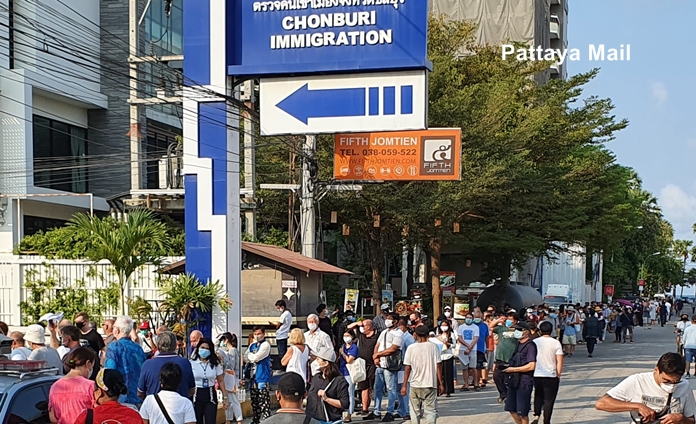
Evidence is growing that the main reason why thousands of foreigners – beneficiaries of the visa grace period which ends on September 26 – are desperately trying to remain in Thailand is fear of coronavirus in their home countries. The immigration bureau has warned that up to 150,000 foreigners need to leave before the due date or obtain a new visa or extension of stay. Otherwise they will be subject to overstay fines and even arrest and deportation.
It is now certain that there will be no new visa amnesty after September 26. Visa agents in Bangkok, Phuket and Pattaya in particular report a lively interest in any last-minute solutions which are still available. However, the sands of time are running out. To obtain a new 90-days non-immigrant “O” visa – given mainly to foreigners with Thai family responsibilities or volunteers with a registered organization or as the first stage in the application for retirement status – requires a processing time of up to two weeks. Some immigration offices are already refusing to accept new applications for that visa. Others are accepting a “late fee”.
The main alternative is to obtain a letter from the stranded foreigner’s embassy requesting immigration authorities to extend for a further 30 days, starting September 27. The picture here is mixed. The Australian and US embassies are issuing the letters by email more or less on demand, whereas the British embassy website suggests they won’t be available to tourists with a disinclination to travel. They have to show proof of the need to stay in Thailand long term. Not easy.
A secondary possibility is to request from immigration a further 30 days based on a letter from a hospital stating they are too ill to travel. However, most immigration offices have specified that the patient needs to be hospitalized with a serious or life-threatening disease, further illustrated by appropriate photos of obvious distress. To judge from informal feedback, most applications which are successful on that basis are terminally ill patients, victims of traffic accidents and those suffering from a violent attack. If you have had a few tooth fillings and a root canal, forget it.
In a press release of September 21, the immigration authority acknowledged that many foreigners who have benefitted from successive amnesties are nervous of second-wave virus outbreaks in parts of Europe, the Americas, India and the Middle East and would prefer to remain in Thailand where community transmission of the dread disease is almost unknown at the moment. The opposite response is that Thailand has been generous in its six months’ amnesty programme and cannot be an alternative home forever without the resources and documentation to obtain a long-term visa.
It is likely that amnesty foreigners with ample financial resources have already signed up for long-term visas such as the one-year renewable retirement option or the Elite visa which can last for 5-20 years depending on the option chosen. Those scrambling for last minute solutions now are likely to be less affluent and have been hoping for a further grace period beyond September 26. In vain.
Travel agents in Europe say that a prime reason why there has been interest in the proposed STV (Special Tourist Visa) which allows long-term leisure tourists to stay in Thailand for up to 270 days is also to escape the coronavirus back home. A spokesman for the London-based ABTA said, “Most people are not interested in spending two weeks in Thai quarantine and undergoing the detailed selection process, but there are individuals who will pay almost any price to escape the virus.” However, the Thai government has warned that the first countries allowed to participate in the scheme will be low risk countries. That doesn’t sound like the United Kingdom.
 |
 |
 |





